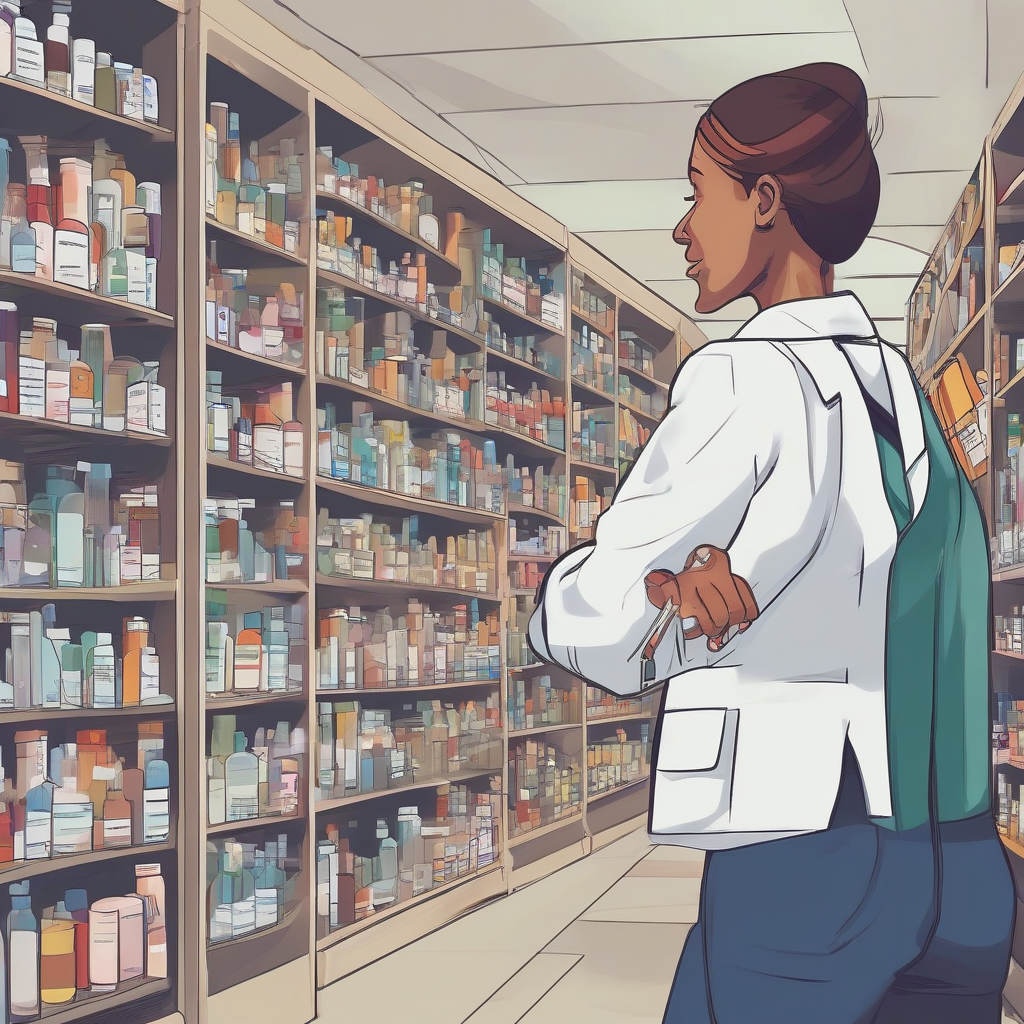Your Path to a Rewarding Career: Finding the Best Pharmacy Technician Programs Near You
Are you interested in a healthcare career that offers a blend of science, patient care, and rewarding opportunities? Becoming a pharmacy technician could be the perfect fit. Pharmacy technicians play a crucial role in dispensing medications, assisting pharmacists, and ensuring patient safety. This comprehensive guide will help you navigate the process of finding the best pharmacy technician programs near you.
Understanding Pharmacy Technician Programs
Pharmacy technician programs vary in length, format, and curriculum. Understanding the different types of programs available will help you make an informed decision. Generally, you can choose from:
- Certificate Programs: These programs are typically shorter, lasting anywhere from a few months to a year. They provide a focused curriculum on the essential skills and knowledge needed to become a pharmacy technician.
- Associate Degree Programs: These programs offer a more comprehensive education, often including courses in medical terminology, pharmacology, and pharmacy law. They usually take two years to complete.
- Diploma Programs: These programs fall somewhere between certificate and associate degree programs in terms of length and depth of curriculum.
- Online Programs: Online programs offer flexibility for those who cannot attend traditional classroom settings. However, it’s crucial to ensure the program includes hands-on training components, often through clinical rotations or partnerships with local pharmacies.
Factors to Consider When Choosing a Program
Selecting the right pharmacy technician program is a crucial step in your career journey. Consider these factors:
- Accreditation: Ensure the program is accredited by a recognized accrediting body, such as the American Society of Health-System Pharmacists (ASHP) or another reputable organization. Accreditation signifies that the program meets specific quality standards.
- Curriculum: Review the program’s curriculum to ensure it covers essential topics such as medication dispensing, inventory management, pharmacy law, and patient safety. Look for programs that incorporate hands-on training and simulated pharmacy environments.
- Job Placement Assistance: Many programs offer job placement assistance to graduates. This can be a valuable resource in helping you secure employment after completing your program.
- Faculty and Instructors: Research the qualifications and experience of the program’s instructors. Experienced instructors can provide valuable guidance and support throughout your program.
- Cost and Financial Aid: Consider the program’s tuition fees and available financial aid options. Explore scholarships, grants, and loans to help fund your education.
- Location and Accessibility: Choose a program that is conveniently located and accessible to you. Consider factors such as commute time and distance from your home or work.
- Program Reviews and Testimonials: Read online reviews and testimonials from past students to gain insights into their experiences with the program.
- Clinical Rotations or Externships: Look for programs that offer clinical rotations or externships in real-world pharmacy settings. This hands-on experience is invaluable in preparing you for your future career.
- Technology and Resources: Evaluate the program’s access to up-to-date technology and learning resources. Modern pharmacy technology is essential for effective practice.
- Flexibility and Scheduling: Consider your personal schedule and lifestyle when choosing a program. Some programs offer flexible scheduling options, such as evening or weekend classes.
Finding Pharmacy Technician Programs Near You
Several resources can help you locate pharmacy technician programs in your area:
- Online Search Engines: Use search engines like Google, Bing, or DuckDuckGo to search for “pharmacy technician programs near me.” Be sure to specify your city, state, or zip code for more accurate results.
- Professional Organizations: Check the websites of professional organizations such as the American Society of Health-System Pharmacists (ASHP) for a list of accredited programs.
- Community Colleges and Vocational Schools: Contact local community colleges and vocational schools to inquire about pharmacy technician programs they offer.
- Hospitals and Pharmacies: Some hospitals and pharmacies may offer training programs or partnerships with educational institutions.
- State Licensing Boards: Your state’s board of pharmacy may have a list of approved pharmacy technician training programs.
- Career Websites: Websites such as Indeed, LinkedIn, and SimplyHired often list pharmacy technician training programs and job opportunities.
Preparing for Your Pharmacy Technician Program
Before you begin your program, ensure you are adequately prepared. This includes:
- Reviewing Prerequisites: Familiarize yourself with any prerequisites required for admission to your chosen program.
- Taking Placement Tests: Be prepared to take placement tests in math and reading comprehension if required.
- Obtaining Necessary Immunizations and Background Checks: Check with the program regarding necessary immunizations and background checks.
- Gathering Required Documents: Gather all necessary documents for the application process, such as transcripts, letters of recommendation, and identification.
Post-Graduation: Licensure and Career Opportunities
After completing your program, you’ll need to obtain the necessary licensure or certification in your state. Requirements vary by state, so check with your state’s board of pharmacy for specific information. Once licensed, you’ll have many career opportunities available, such as:
- Retail Pharmacies: Work in local pharmacies dispensing medications, assisting customers, and maintaining inventory.
- Hospitals: Assist pharmacists in hospital settings, managing medications for patients, and ensuring accurate dispensing.
- Mail-Order Pharmacies: Process and dispense medications for mail-order pharmacy customers.
- Long-Term Care Facilities: Provide medication management services to patients in long-term care facilities.
- Government Agencies: Work for government agencies involved in medication regulation and distribution.
Remember to thoroughly research programs, compare options, and choose the one that best fits your needs and career aspirations. A successful career as a pharmacy technician awaits!

